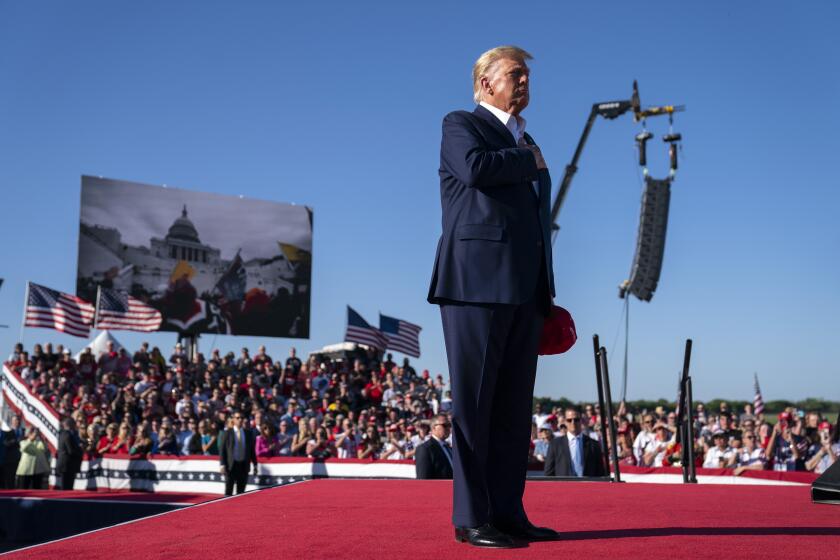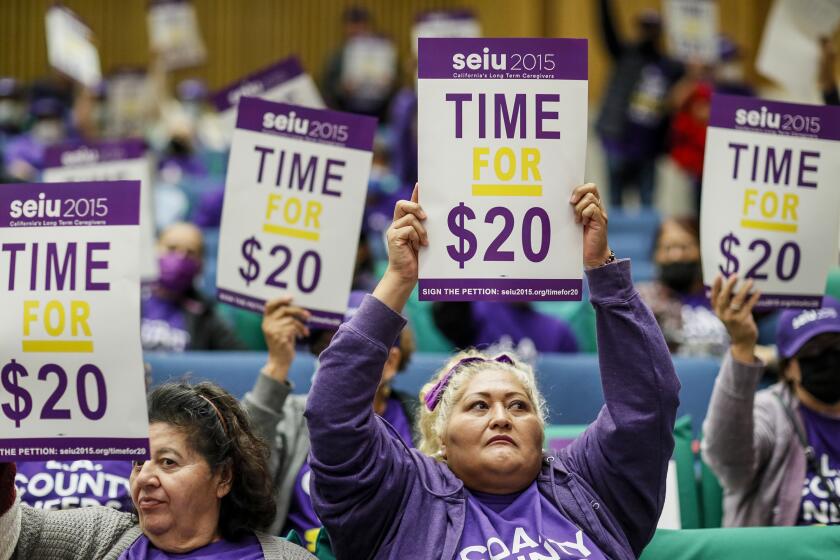Funds Sought to Control Soviet ‘Loose Nukes’
A bipartisan group of 15 influential senators sought Thursday to persuade Congress to provide up to $500 million to help the Soviets control and dismantle 15,000 nuclear weapons spread over Russia and three other independence-bound republics.
As the former superpower that was the Soviet Union disintegrates, the senators and an independent Harvard University study released Thursday warned that the frightening possibility of “loose nukes” requires fast action--to prevent the weapons’ dispersal within or beyond Soviet borders and to prevent the republics from changing their minds and seeking to keep the weapons for themselves.
The senators, led by Richard G. Lugar (R-Ind.) of the Senate Foreign Relations Committee, are attempting to salvage key features of a $1-billion proposal along the same lines made by Congress’ Democratic leadership. That move died last week in the face of political opposition to any aid for the Soviets while the U.S. economy is hard-pressed to help poor Americans.
Senators, including Chairmen Sam Nunn (D-Ga.) of the Armed Forces Committee and David L. Boren (D-Okla.) of the Intelligence Committee, are framing the narrower proposal to address an urgent “national security issue, not a foreign aid issue.”
The six-month Harvard study concludes that “there is no option to wait, deliberate or negotiate at length.” Without U.S. technical help, the Soviets can dismantle the weapons at a rate of 2,000 a year. At that pace, they would need seven years to complete the task, said Ashton Carter, one of the study’s authors. “We just don’t have that kind of time,” he said.
As now offered, the proposal would permit funds to be used only to help “demilitarize and denuclearize” the Soviet Union. Unlike the earlier proposal, it would not allow money to be spent for U.S. military transportation of emergency food and medicine to the Soviets.
The White House is still lukewarm about the idea. “Our position is we don’t need additional authority or aid for the Soviets this calendar year,” a spokesman said.
“There’s a strange mood up on (Capitol) Hill right now,” a senior Bush Administration official said, explaining the White House wariness. Opposition to aid to other countries--the Soviets or anyone else--is running high in Congress after the stock market’s downturn and recent election results, the official indicated. But a high-level meeting of U.S. and Soviet experts is scheduled next week to discuss destruction of short-range nuclear weapons, an official noted, suggesting that the outcome could affect the Administration’s position.
Lugar said the proposed aid, to come from the defense budget, “could be anything . . . from $500 million to $200 million.” The President and the defense secretary would identify funds to be used, he said, and some money could go to hire expert U.S. firms to help the Soviets.
More to Read
Get the L.A. Times Politics newsletter
Deeply reported insights into legislation, politics and policy from Sacramento, Washington and beyond. In your inbox three times per week.
You may occasionally receive promotional content from the Los Angeles Times.






